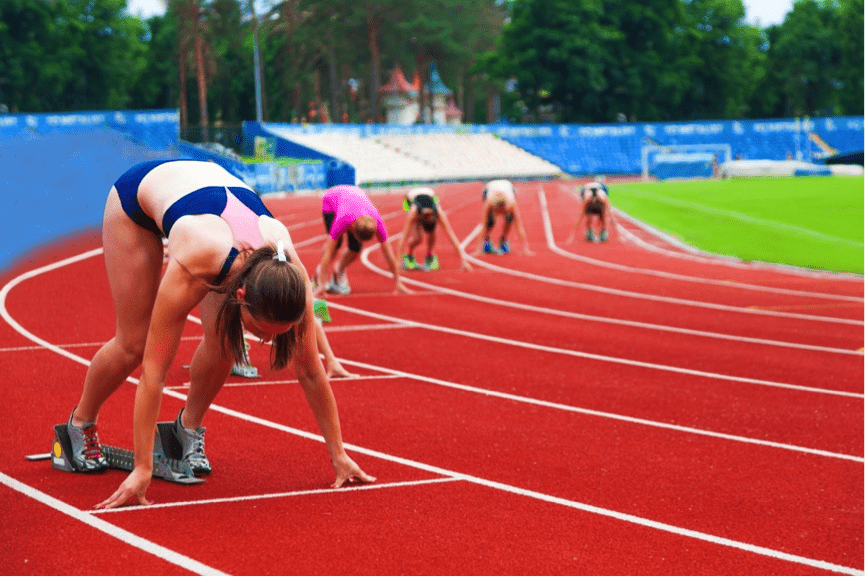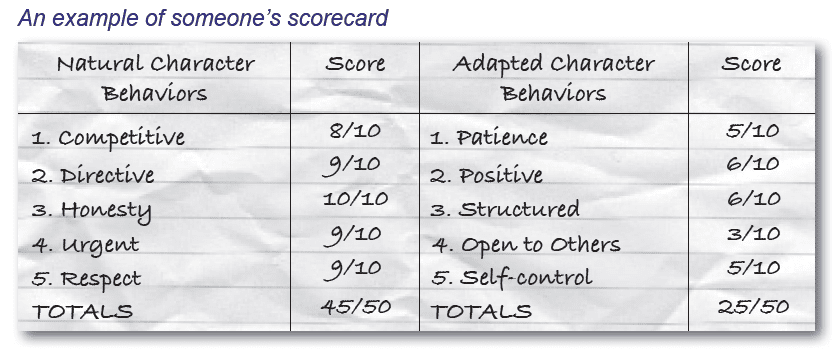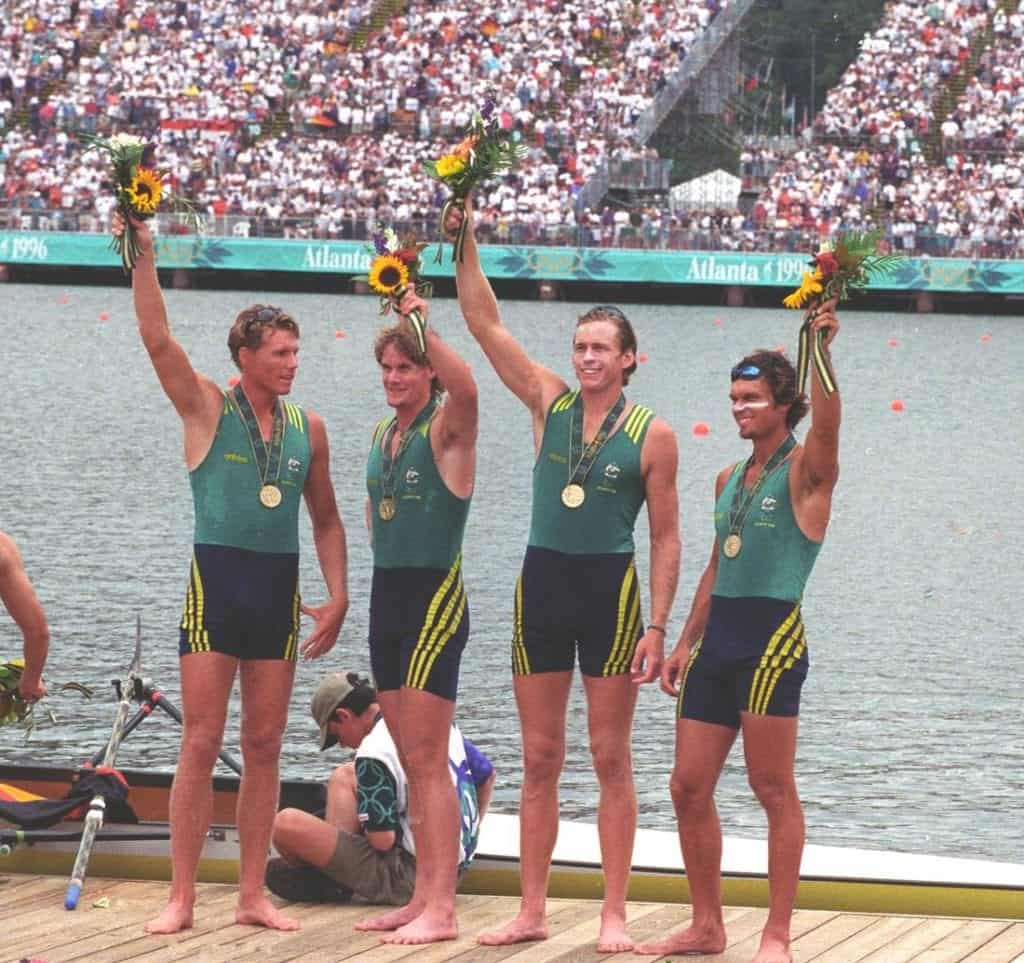By Bo Hanson, 4x Olympian and Coaching Consultant
In elite sport, leveraging the 0.1% improvements in your team is not only important, it’s essential. At the Performing Stage of Team Development, the concept of building character is an important one. Our model for doing this is driven through behavior and underpinned by DISC.
It’s about athletes being the best player for the team,
not the best player on the team.
Personal and Performance Characteristics
Character qualities are described as Personal or Performance. These two types of qualities work together to deliver winning results on and off the field. As an example, Personal characteristics may include integrity, respect, honesty, compassion and determination, while Performance characteristics may include focus, confidence, competitiveness, self discipline and mental toughness.
It is possible to have an abundance of Performance characteristics, yet have significant deficiencies on the Personal side. This may lead to success in performance, but at the cost of others and the sport (i.e. drugs in sport). Research shows that Personal characteristics drive Performance characteristics and focusing on the Personal characteristics first, creates more sustainable results. This is not to the detriment of Performance characteristics as these are given a foundation to develop when the Personal characteristics are solid.
Personal Character Qualities:
Kind, generous, respectful, honest, honorable, tough, optimistic, positive, determined, compassionate, empathetic, patient, truthful.
Performance Character Qualities:
Perseverance, self-disciplined, competitive, accountable, focused, hard-working, mentally tough, brave, resourceful, self-controlled, creative, seeking challenges, adaptable, confident, reliable, ambitious, critical thinking.
Someone’s character is acted out through their behavior. Our focus is on behavior as it is something that is adaptable. We can help our athletes develop character through how they act (i.e. their behavior). For example, the AthleteDISC Profile identifies an athlete’s strengths and weaknesses. Keep in mind that our greatest strengths can be our greatest weaknesses when overused. The aim is to use these for the benefit of their performance and the team. A key exercise we use is a Character Scorecard.
The Character Scorecard
With the Character Scorecard, each individual identifies five strengths (Natural Character Behaviors) that come easily to them and also five areas they need to consciously work on (Adapted Character Behaviors). They use their DISC Profile report as a tangible way to identify these. Then, on a weekly basis, they score themselves on how they are performing.
Where a low score is given, they then work on this to improve. The approach is to develop their ‘character muscle’. This requires practice and conscious attention, in the same way we would develop any muscle. We need to exercise it regularly and consistently to become stronger and to be able to rely on it when the pressure is on.
Individuals use their DISC Profile to identify their strengths (Natural Character Behaviors) that are valued by the team and Adapted Character Behaviors that they need to be deliberate about displaying (these are often identified as areas for development in their DISC Profile). In the above example there is a mixture of both Performance and Personal Characteristics. Ideally there is a balance between the two and there should always be Personal Characteristics. When scoring each item ask for specific examples of when these behaviors have been displayed.
Measuring Character or Results: Points for Consideration
It is more important to measure character displayed in attempting to perform on the field, than actually the end result of a performance. This is because everyone’s means to an end is different. For example, should an athlete who is the slowest on the field, who chases down a loose ball or chases a faster opponent and catches them (or not, but never gives up) be recognized more so than the athlete who only needs to run at half pace to do the same act in a game? It is not the technical act which is to be measured but instead it is the character shown in producing the act or attempted technical execution which should be rewarded.
Being consistent should be more a measure of character than execution. Where character is displayed at the highest level and execution is not 100%, then there is room for technical skill development which is what practice is about. When character is poor there exists a far greater problem.
Obviously in high performance sport, technical execution and personal and performance character have to be present. When everyone does both of these consistently, then teams produce winning results.
An extrinsic motivator is to look at your personal statistics from competition and evaluate yourself purely on these and deciding on whether you achieved your targets. Chasing these extrinsic measures is going to result in feelings of being more often exhausted and depleted when not achieved and what positive feelings they get when they can tick themselves, will be short lived. This is typically what has been found in much research on extrinsic motivation. Instead, create an additional intrinsic measure of one’s success by allowing them to measure their effort and character displayed in achieving a technical goal.
Intrinsic measures include:
- Effort and energy of the highest quality.
- Lived the team’s values as created in the GRIP Model.
- Displayed character qualities you were proud of.
- Experienced personal growth.
- Rose to the challenge.
When athletes do this, they experience strong personal fulfillment and pride in themselves that cannot be taken from them by an external observer’s comments such as media or others outside of the team. Meeting their own personal intrinsic motivators energizes an athlete to further commit themselves to being their best more often.
At Athlete Assessments, we’re here to provide you with excellence in service and to help you be your best. If there is anything we can assist you with, please Contact Us.





